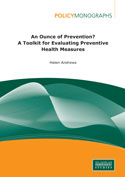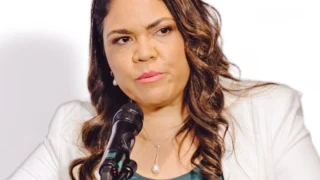

Preventive health is a broad umbrella that includes such disparate services as vaccines for schoolchildren, blood pressure screenings, ad campaigns to discourage binge drinking, and special taxes on tobacco products. What all these programs have in common is an intention to spend money now in order to save money later—catching costly health problems before they arise or when they are less advanced and easier to treat.
However, even the most straightforward early interventions do not always save money over the long term. Contrary to the old proverb, an ounce of prevention is not always worth a pound of cure. Something as seemingly basic as a cancer screening, if it is not narrowly targeted at high-risk patients, can fail to save money. In some cases, it can even do more harm than good.
Trying to tell whether a preventive health program will be as effective—and cost-effective—as its proponents claim is a difficult task for policymakers and voters. This paper offers a toolkit to assist in their evaluations, in the form of eight questions to ask of any preventive health proposal.
1. Is the program narrowly targeted or indiscriminate?
2. Is your message simple?
3. Are the targets you’re setting more easily gamed than achieved?
4. Are you setting targets that, even if achieved, won’t mean much?
5. Are you underestimating what the average person knows?
6. Are proponents using jargon, scare language, or other misleading rhetoric?
7. Is there a clear line between expenditure and payoff?
8. Is the justification for government intervention just a pretext?
To demonstrate how the toolkit can be applied, this paper concludes with a look at bariatric surgery as a preventive treatment.
Helen Andrews is a Policy Analyst with the Social Foundations Program at The Centre for Independent Studies and the editor of Policy magazine. She holds a Bachelor of Arts from Yale University. Her previous report for the CIS was Independent Charities, Independent Regulators: The Future of Not-for-Profit Regulation.









